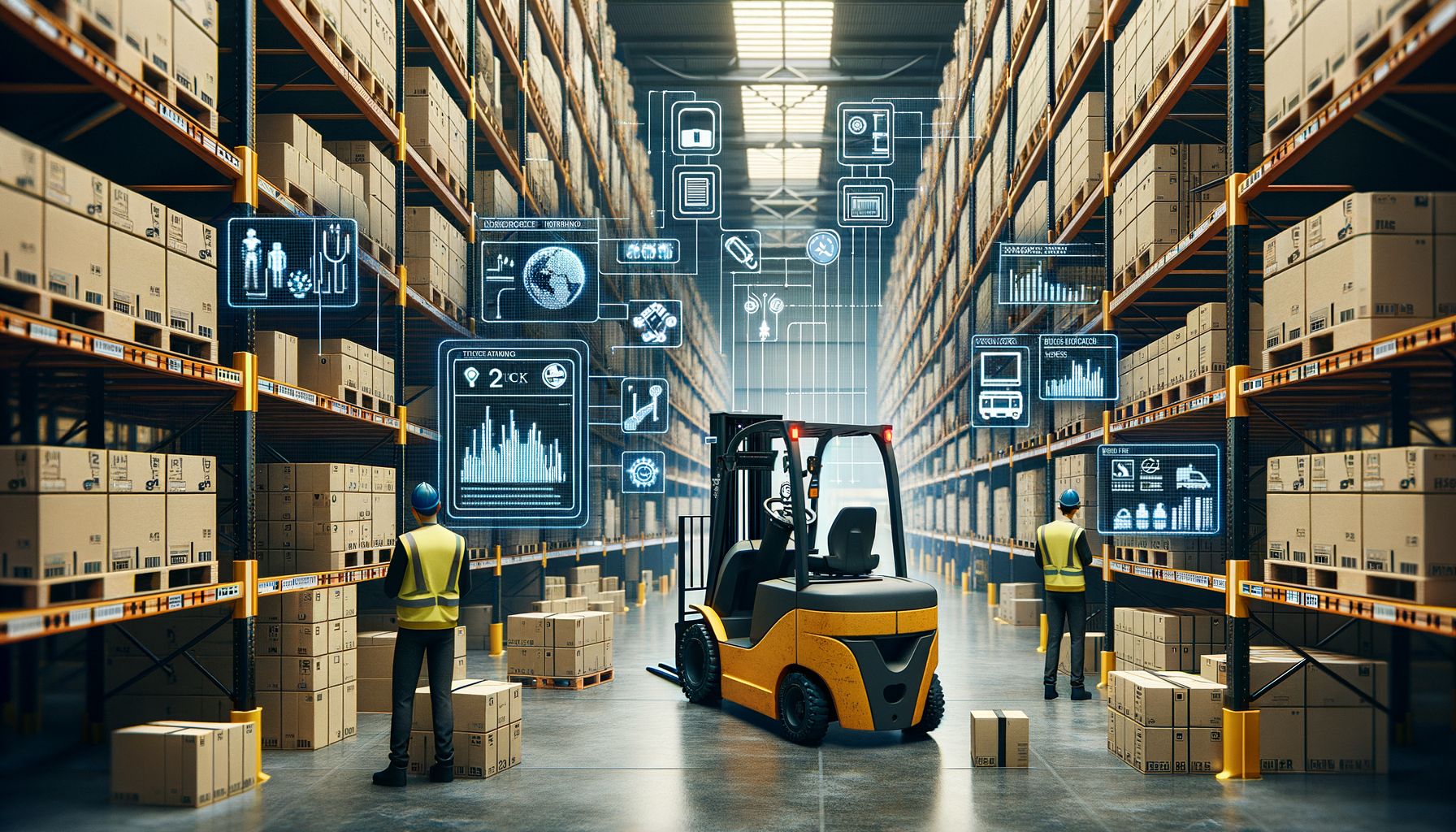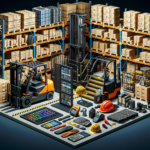Understanding the Basics of Warehouse Training
Warehouse training is a fundamental step for anyone looking to enter the logistics and supply chain industry. It is especially important in Germany, where efficiency and precision are highly valued. The training encompasses a variety of skills and knowledge areas, including safety protocols, equipment handling, inventory management, and teamwork. Understanding these basics not only helps in performing daily tasks efficiently but also ensures compliance with legal and safety regulations.
One of the key components of warehouse training is safety. Employees are taught how to handle equipment such as forklifts and pallet jacks safely. This includes understanding weight limits, proper lifting techniques, and emergency procedures. Safety training reduces the risk of workplace accidents, which are not only costly but also detrimental to the workforce morale.
Another important aspect is inventory management. Trainees learn how to use inventory management systems to track and manage stock levels. This involves data entry, stock rotation, and understanding the logistics of supply and demand. Efficient inventory management ensures that the warehouse operates smoothly, with minimal disruptions in the supply chain.
Additionally, teamwork is emphasized during training. Warehouses operate on a team-based model where communication and collaboration are crucial. Training sessions often include team-building exercises to foster a cooperative work environment. This not only enhances productivity but also creates a supportive workplace culture.
The Role of Technology in Modern Warehouse Training
In today’s digital age, technology plays a pivotal role in warehouse training. The integration of technology in training programs has revolutionized the way warehouses operate, making processes more efficient and streamlined. In Germany, where precision and innovation are key, technology-driven training is becoming increasingly prevalent.
One of the technological advancements in warehouse training is the use of virtual reality (VR). VR simulations provide a safe and controlled environment for trainees to practice various tasks, such as operating machinery or navigating the warehouse layout. This immersive experience helps trainees gain confidence and proficiency before handling real-world scenarios.
Moreover, warehouse management systems (WMS) and automated inventory systems are integral to training programs. Trainees are taught how to use these systems to manage stock, track shipments, and optimize warehouse operations. Understanding these technologies is crucial as they form the backbone of modern logistics operations.
Additionally, e-learning platforms have made training more accessible and flexible. Online courses and modules allow trainees to learn at their own pace, which is particularly beneficial for those balancing work and study. These platforms often include interactive elements, such as quizzes and simulations, to enhance learning outcomes.
Incorporating technology in warehouse training not only improves efficiency but also prepares the workforce for the future of logistics. As technology continues to evolve, ongoing training and upskilling will be essential to maintain a competitive edge in the industry.
Benefits of Comprehensive Warehouse Training
Comprehensive warehouse training offers numerous benefits to both employees and employers. For employees, it provides the skills and knowledge needed to perform their roles effectively, leading to increased job satisfaction and career advancement opportunities. In Germany, where the logistics sector is a significant contributor to the economy, skilled warehouse workers are in high demand.
For employers, investing in comprehensive training programs leads to a more competent and efficient workforce. Trained employees are more likely to adhere to safety protocols, reducing the risk of accidents and associated costs. Moreover, well-trained staff can handle a wider range of tasks, increasing operational flexibility and productivity.
Comprehensive training also fosters a positive workplace culture. Employees who feel supported and valued are more likely to be engaged and motivated. This, in turn, leads to lower turnover rates and higher employee retention, which are critical for maintaining a stable and experienced workforce.
Furthermore, training programs can be tailored to meet specific organizational needs. Whether it’s focusing on new technologies, improving customer service, or enhancing leadership skills, customized training ensures that employees are equipped to meet the unique challenges of their roles.
In conclusion, comprehensive warehouse training is an investment that pays off in numerous ways. It not only enhances individual performance but also contributes to the overall success and competitiveness of the organization. As the logistics industry continues to evolve, ongoing training and development will remain key to staying ahead in the market.








